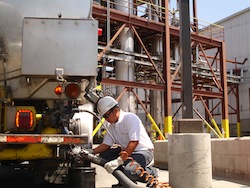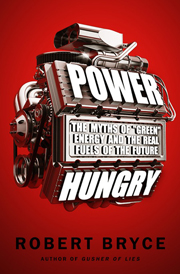![]() Now that the EPA has given limited approval for consumers to fill up with E15, what is the next step for gasoline marketers, retailers and ethanol producers? You can get all the details at the upcoming Ethanol Industry Summit being held in Houston, Texas on December 7-8, 2010. The Summit is hosted by Informa Economics and F.O. Licht.
Now that the EPA has given limited approval for consumers to fill up with E15, what is the next step for gasoline marketers, retailers and ethanol producers? You can get all the details at the upcoming Ethanol Industry Summit being held in Houston, Texas on December 7-8, 2010. The Summit is hosted by Informa Economics and F.O. Licht.
The 4th Annual Ethanol Industry Summit will bring together key industry leaders to give you insight into what needs to be done to continue to drive the industry forward, reduce uncertainty and increase demand and support for biofuels. Summit speakers include:
1. Todd Becker, President & CEO, Green Plains Renewable Energy – share the strategic vision of this major ethanol producer.
2. Sue Ellerbusch, President, BP Biofuels, discusses opportunities for traders, producers & biotechnology companies.
3. Fabrizio Zichichi, Managing Director, Commodities, Morgan Stanley – discover the main drivers for ethanol financing.
4. Tom Buis, CEO, Growth Energy & Geoff Cooper, VP, RFA talk mandates, logistics, blend wall & supply/demand.
5. Candace Wheeler, Technical Fellow, General Motors R&D assesses the role of biofuels in sustainable mobility & Obama’s CO2 reduction targets.
Also during the conference, attendees will learn about the impacts of the Low Carbon Fuel Standard (LCFS), and the Renewable Fuel Standard (RFS2) will have on the industry; hear about investment and financing opportunities; learn how to optimize your production process to improve efficiency and meet market demands; learn how to manage risks in feedstock markets, and more.
Register before October 29 to receive Summit discounts. Click here to learn more about the conference and for online registration.












